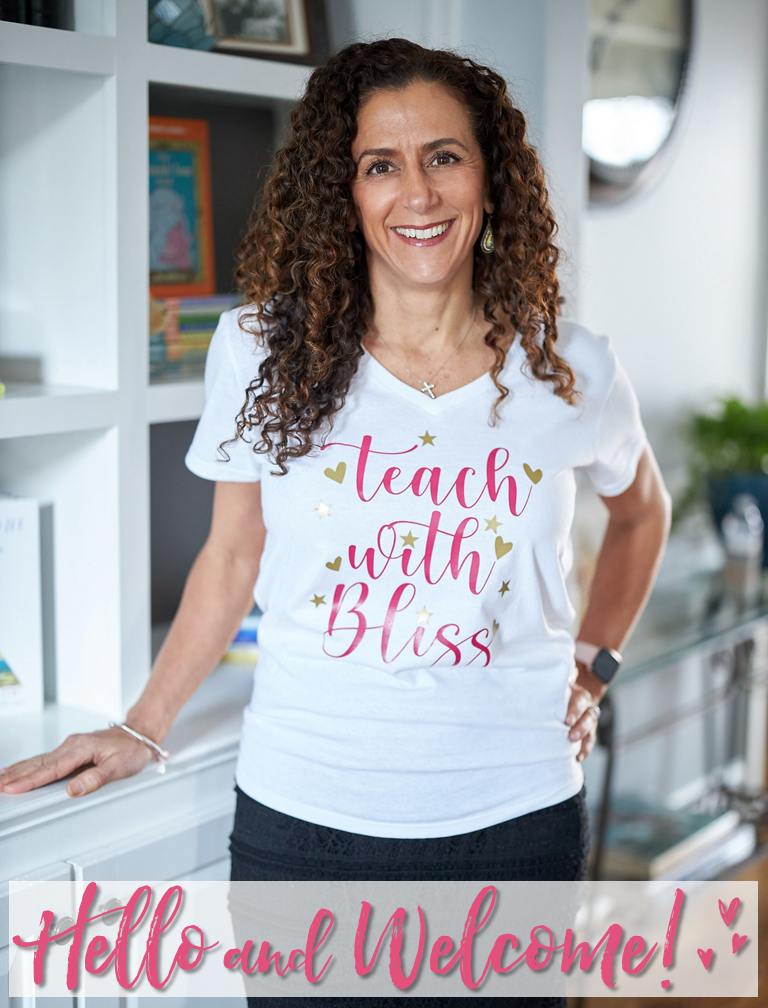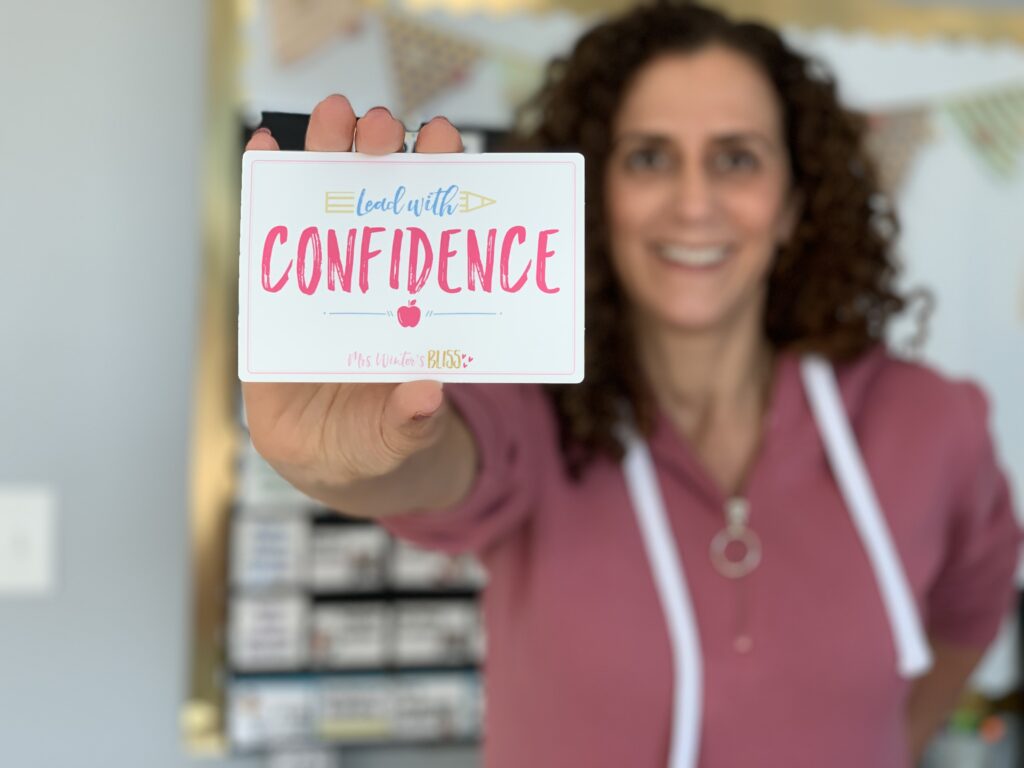
You’re in the right place if you want practical, Science of Reading-aligned ideas and resources that you can use immediately in your classroom.
Mrs. Winter’s Bliss helps teachers figure out how to teach with ease. Because who wants to spend 27 hours of the day Pinteresting, planning, and prepping lessons and materials? Nobody, that’s who!
You’ll find here practical advice, lessons and activities, materials, and PD training that are designed to:
Teaching is hard enough. So let us do the heavy lifting for you so you can teach with bliss!
When you have the resources you need to be a great teacher, your classroom can be a blissful buzz of learning.

21+ years of classroom teaching | LETRS® trained | Science of Reading Advocate
I’m also the creator of the Success With Centers course, the founder of the Leaders of Literacy membership, and a featured presenter from the Unlocking the Science of Reading (SoR) virtual conference.

You might say I was born to be a teacher. Even as a child, I knew I wanted to teach and inspire young minds. (Was I the girl who taught her stuffed animals the alphabet? Yes! Did I babysit every kid in the neighborhood? You know it!) I’m proud to say I’m a first-generation college graduate who went on to get my Masters Degree in Early Childhood Education.
Like many teachers, I am a lifelong learner! That’s why I’m in the process of completing LETRS® (Language Essentials for Teachers of Reading and Spelling) and I’ve completed The Reading Teacher’s Top 10 Tools training. I want to deliver exceptional resources and training for kindergarten, first, and second grade teachers.
Teaching literacy skills to lower primary students is my JAM. It all started with literacy centers.
While some teachers fear the way centers can become a noisy 3-ring circus…I quickly figured out the formula for keeping my kids on-task, productive, and engaged in their learning.
In fact, substitute teachers would leave me thank-you notes saying:
“I didn’t even need to be here today! Your kids knew exactly what to do without me telling them! I’ve never seen 1st graders be so productive and behave so well during center rotations. HOW DID YOU DO THAT?!?!”
During my time in the classroom, I became the go-to for mentoring other teachers who needed help with literacy centers. I’m obsessed with the craft of teaching, so it filled my cup to help other teachers their classrooms into a blissful buzz of learning.
Mrs. Winter’s Bliss started in 2013 so I could help other teachers who had very little to teach from. When I made the tough decision to leave the classroom, I knew I wasn’t done teaching. My blog became a way to continue mentoring other teachers the way I had when I was still in the classroom.
But leaving the classroom did something amazing for me—I finally had the time to devote to really understanding how children learn. I love creating resources with intention and an eye toward making activities that help students achieve a high level of mastery. And I was so encouraged by all the teachers who reached out to me to let me know how much time I had saved them, and how much their students were benefiting.
Why I made the switch from balanced literacy to structured literacy
(Science of Reading)
When I was still teaching, I taught balanced literacy, and many students in my classroom were successful. So my blog and resources were aligned with balanced literacy, too…
…until I caught wind of Science of Reading. It’s a radical departure from the whole language and balanced literacy many of us have been teaching for our entire careers.
At the center of balanced literacy is a belief that students will learn (and love) to read through repeated exposure to high-quality texts. Skills are not taught systematically; instead teachers have been trained to used leveled, patterned texts and three-cueing systems are used to get students to guess words they can’t read.
However, the research inside Science of Reading proves that most children need explicit, systematic instruction in individual literacy skills to learn to read (AKA, structured literacy).
The nationwide scramble to align reading instruction with Science of Reading is still underway.
The only question is: Why are we only just finding out about this now? This body of research has been around for decades and decades!
Even worse, most teachers nationwide are not being taught Science of Reading in their teacher preparation programs. In colleges of education, many deans and professors don’t know the science or they dismiss it. It’s hard not to think of the kids who could have learned better decoding skills…if only we had been taught how to teach reading the right way.
As the saying goes, “The best time to plant a tree was 20 years ago. The second best time is now.”
Now that we know better, we can do better. We can teach our kids how to read according to the science so they can become confident, skilled readers.
Busy teachers like you don’t really have the time to sort through scientific research and translate the standards into engaging literacy curriculum.
You know who does have time for that? Me! That’s why I’m trained in LETRS® and have participated in so many Science of Reading-aligned trainings. As a result I’ve already removed all my old balanced literacy resources from my store, and replaced them with better, Science of Reading-aligned resources.
I love taking deep dives into best practices for literacy instruction and then translating the research into training and resources for teachers. Why? Because as our recognized authority on Science of Reading Dr. Louisa Moats says,
“Informed teachers are our best insurance against reading failure. While programs are very helpful tools, programs don’t teach; teachers do.”
I’m SO GLAD you’re here, teacher-friend.
Christina Winter
Founder, Mrs. Winter’s Bliss
COPYRIGHT © 2024 · TERMS AND CONDITIONS